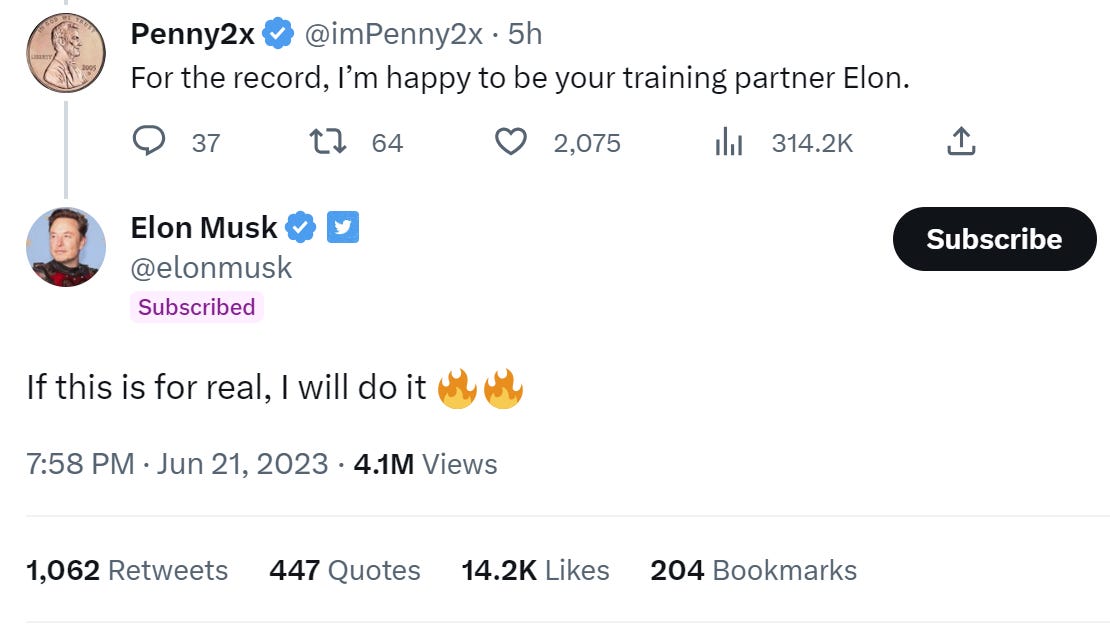Don't let them fight
On self-driving cars, cage matches, and nearly 300-year-old advice to two of the world's richest people
History contains no record of J. Pierpont Morgan offering to fight Andrew Carnegie in a boxing match. But in our own age, we have Mark Zuckerberg and Elon Musk taunting one another into a cage fight. Talk is cheap, and social media tools (of which the two are the current 800-lb. gorillas) offer countless ways to indicate sarcasm and face-saving retractions. The entire thing could quite easily resolve to nothing at all.
■ Yet there is nothing at all to guarantee that it won't come to pass. Facebook/Meta's board of directors, captive though they might be to Zuckerberg's controlling stake in the voting shares of the company, probably wouldn't be performing their fiduciary duties if they let Zuck step into the ring. (Though it's plausible that self-proclaimed "cyberpunk activist" Marc Andreessen, who sits on Meta's board, might well jockey for a ringside seat.)
■ Likewise, Elon Musk answers to a considerable number of stakeholders in his various enterprises, none of whom want to see him literally bloodied in the ring. The latest annual report of Tesla, for instance, contains the actual words "We are highly dependent on the services of Elon Musk, Technoking of Tesla and our Chief Executive Officer." Admittedly, "Technoking" is an unserious title. But insurance companies are very serious indeed about insuring key employees -- even if, in Tesla's own words, "As a general matter, we do not maintain as much insurance coverage as many other companies do, and in some cases, we do not maintain any at all."
■ There's something unseemly about two of the world's ten richest people strutting around like steroid-addled peacocks, even if it's entirely in jest. It is, of course, a mistake to over-interpret wealth or business success as a signal of other merit or of skill beyond the "lane" that made one rich.
■ But both Zuckerberg and Musk have considerable influence in addition to wealth. Moreover, both are demonstrably intelligent individuals, even if they might not be as smart as they estimate themselves. And it's not unreasonable to expect them both to know better: Benjamin Franklin published the advice in 1742 that "Money and good manners make the gentleman." Is a little gentility in their outward behavior really that much to ask?



